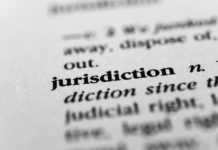New chapter in BAL19 saga
Federal Court. In BAL19, FCA decided that s 501 and PIC 4001 do not apply to protection visa applications. In BFW20, FCA held that BAL19 was not plainly wrong and that DHA could not delay making a decision on protection visa applications on the basis that it disagrees with BAL19 and is appealing that decision. Minister then appealed FCA's decision in BFW20 and applied for a stay of FCA's orders as part of that appeal. Minister argued that, unless a stay was given, he would have to grant a visa on the basis that s 501 did not apply and that, as visa grant is not something that can be undone, the subject matter of the stay application would be destroyed. Should FCA's orders be stayed?
Can DHA delay decision while appealing judgement?
Federal Court. In BAL19, FCA decided that s 501 and PIC 4001 do not apply to protection visa applications. Can DHA delay making a decision on protection visa applications on the basis that it disagrees with BAL19 and is appealing that decision? Was FCA's decision in BAL19 plainly wrong? Does s 501(3A) apply to the cancellation of protection visas? Does s 501 operate independently from s 65? If the delay is not justified and BAL19 was not plainly wrong, should FCA issue a writ of mandamus, requiring DHA to consider according to law the protection visa application on the basis that s 501(1) does not empower the refusal of the application?
Are digital images “material provided” by applicants?
Federal Court. Under s 473CB(1)(b) of the Migration Act 1958 (Cth), where a protection visa refusal is referred to the Immigration Assessment Authority (IAA), the Secretary must give the IAA "material provided" by the visa applicant to the Department. For the purpose of that provision: are digital images “material”; did the Appellant “provide” the delegate with a digital image by showing it to the delegate on his phone; must the material be given to the IAA even if it is not in the Secretary’s possession or control? We summarises those and many other questions.
The interplay between ss 476A(2) and 196(4)
Federal Court. Under s 196(4) of the Migration Act, if a person is detained as a result of a visa cancellation under provisions such as s 501, "the detention is to continue unless a court finally determines that the detention is unlawful, or that the person detained is not an unlawful non-citizen". Interpreting s 196(4) in isolation, a court would have no power to make a non-final (i.e. interlocutory) order for the release of a person to whom that provision applies. However, s 476A(2) provides that, where the FCA has jurisdiction in relation to a matter, that jurisdiction is the same as the High Court's. Does s 476A(2) give the FCA the power to make an interlocutory order for the release of a person to whom s 196(4) applies?
Timing of cl 485.223 & abuse of process
High Court. The AAT affirmed a refusal to grant the plaintiff a subclass 485 visa on the basis that his visa application had not been accompanied by evidence that the he had applied for a skills assessment. The plaintiff unsuccessfully applied to the FCCA for judicial review of the AAT's decision and unsuccessfully appealed to the FCA. The plaintiff eventually applied to the HCA for constitutional writ "on the basis of grounds rejected in the courts below". Was the application to the HCA in its original jurisdiction an abuse of process? Can cl 485.223 be satisfied by evidence provided to the decision-maker after the time of submitting the visa application?
Relocation principle is more nuanced than once thought
Federal Court (Full Court). Till 2014, Migration Act 1958 defined "refugee" by reference to the "Convention", under which a person was not a refugee if it would be reasonable to relocate to a place in their home country where they would not be persecuted (the relocation principle). Since 2014, the Act has defined a "refugee" as a person whose "real chance of persecution relates to all areas of a receiving country", among other things (s 5J(1)(c)). The FCAFC accepted that the relocation principle no longer applies to the definition of "refugee". However, does the reference in s 5J(1)(c) to all areas of a receiving country mean all areas where there is safe human habitation and to which safe access is lawfully possible?
s 424(3)(b) exclusion by incorporation?
Federal Court. Delegate collected photos and screenshots from Facebook accounts which were not included in, but were referred to, in its decision record. Appellant provided AAT with those reasons, but not the photos and screenshots. AAT was obliged under s 424A(1)(a) to give Appellant particulars of any information it considered would be the reason for affirming decision, except if Appellant gave that information for the purpose of the review application (s 424A(3)(b)). Can it be said that exception did not apply because, "although the photos and screenshots ... were not themselves exhibited in the Delegate’s Reasons, those reasons clearly referred to the substance of the Facebook information, and incorporated that information by reference to the departmental file"?
Division underlying Ibrahim / Nguyen tension persists
Federal Court (Full Court). 1st and 2nd Appellants made protection claims, adding their appellant children as dependents and making protection claims on their behalf. IAA's finding about children was simply: "Country information does not indicate that children are prosecuted". That finding was based on the following passage of a DFAT report: "Children are never subject to bail or fines". Was the IAA's finding a finding "about what will not happen to returned asylum seekers who are children, rather than a finding about what will happen" and thus not supported by evidence? In order to prove an error was material and thus jurisdictional, must judicial review applicant adduce evidence in court of what would have occurred had error not been made, as held in Ibrahim? Or should FCAFC follow Nguyen instead?
Do practitioners have a “right” to attend, object or intervene in AAT hearings?
Federal Court (Full Court). 1st Appellant applied for protection visa and added her children, 2nd and 3rd Appellants. Until and including AAT hearing, children had not made their own protection claims. They all attended the hearing in person. Practitioner also attended, but over the telephone, as his flight was delayed. Children were neither heard nor asked to be heard. 1st Appellant told AAT during hearing her children did not have their own protection claims and practitioner did not intervene to correct her. AAT asked for children to leave hearing room while 1st Appellant gave evidence, which they did. Practitioner did not object to that, but made post-hearing submissions including children's own protection claims. Can it be said that lack of objection and intervention meant that procedural fairness obligation in s 425 was not breached? If so, does that imply practitioners have a right to do so?
Is non-referral for Ministerial Intervention judicially reviewable?
Federal Court. Applicant requested that Minister consider exercising power under s 417 of Migration Act. Case officer made a 3 page initial assessment, concluding: "The claims and circumstances presented in this request are not unique or exceptional when assessed against the Minister’s Guidelines. The case is assessed as not meeting the Guidelines for referral to the Minister". Acting Assistant Director's decision read: "I agree with the assessment that circumstances of this case do not meet the Minister’s Guidelines for referral and that, in accordance with the Guidelines, the Department should finalise this request without referral..." Is s 417 conditioned by the requirement of legal reasonableness? If so, was initial assessment or agreement with it legally unreasonable?





















